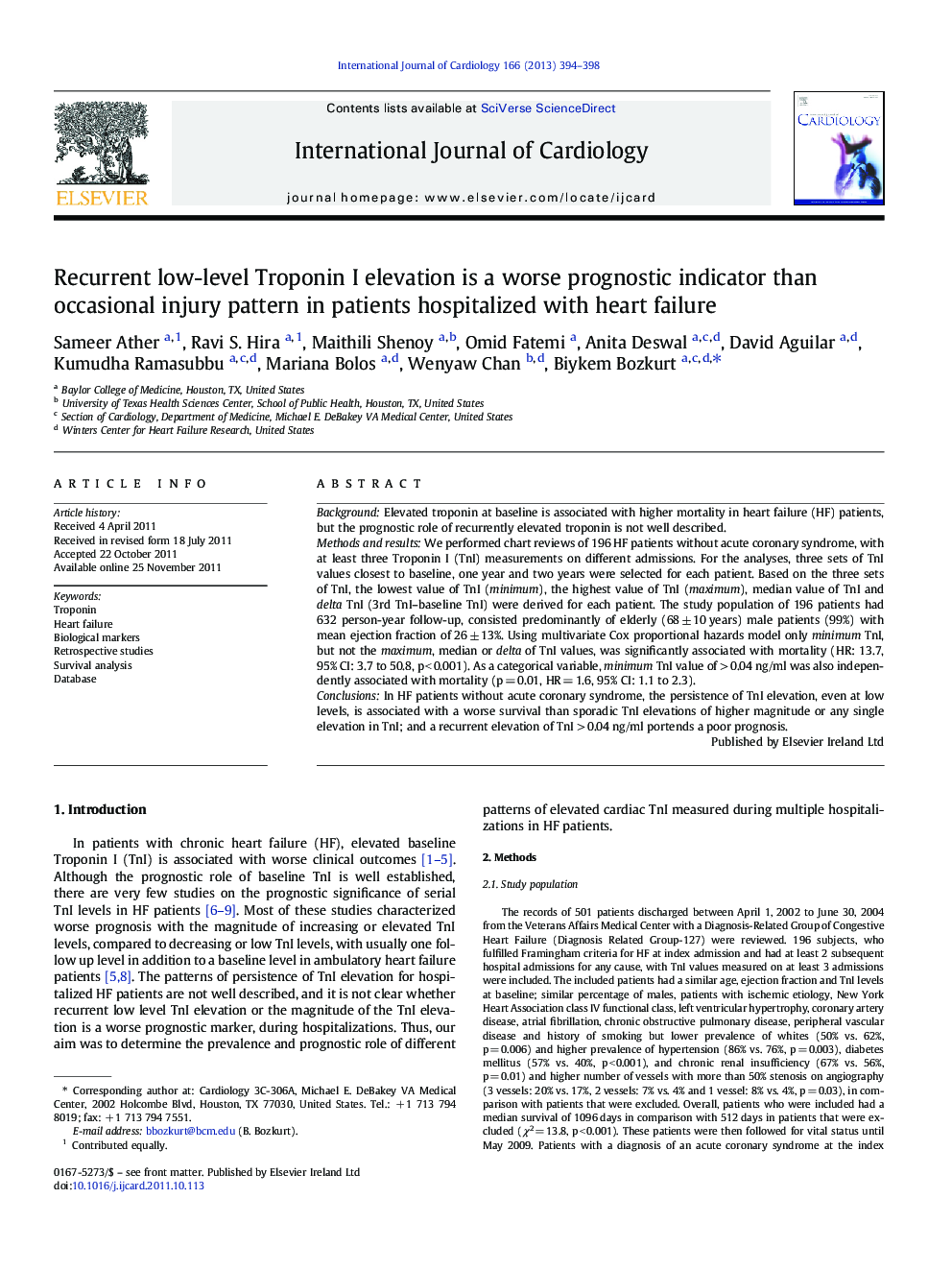| Article ID | Journal | Published Year | Pages | File Type |
|---|---|---|---|---|
| 5976390 | International Journal of Cardiology | 2013 | 5 Pages |
BackgroundElevated troponin at baseline is associated with higher mortality in heart failure (HF) patients, but the prognostic role of recurrently elevated troponin is not well described.Methods and resultsWe performed chart reviews of 196 HF patients without acute coronary syndrome, with at least three Troponin I (TnI) measurements on different admissions. For the analyses, three sets of TnI values closest to baseline, one year and two years were selected for each patient. Based on the three sets of TnI, the lowest value of TnI (minimum), the highest value of TnI (maximum), median value of TnI and delta TnI (3rd TnI-baseline TnI) were derived for each patient. The study population of 196 patients had 632 person-year follow-up, consisted predominantly of elderly (68 ± 10 years) male patients (99%) with mean ejection fraction of 26 ± 13%. Using multivariate Cox proportional hazards model only minimum TnI, but not the maximum, median or delta of TnI values, was significantly associated with mortality (HR: 13.7, 95% CI: 3.7 to 50.8, p < 0.001). As a categorical variable, minimum TnI value of > 0.04 ng/ml was also independently associated with mortality (p = 0.01, HR = 1.6, 95% CI: 1.1 to 2.3).ConclusionsIn HF patients without acute coronary syndrome, the persistence of TnI elevation, even at low levels, is associated with a worse survival than sporadic TnI elevations of higher magnitude or any single elevation in TnI; and a recurrent elevation of TnI > 0.04 ng/ml portends a poor prognosis.
